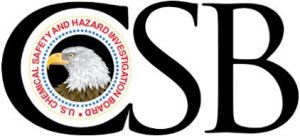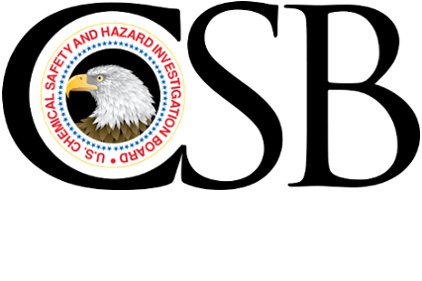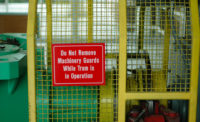 A highlight at ASSE’s annual professional development conference, this year titled Safety 2013, is the Executive Summit Panel Discussion. This year’s featured panelists: Robert Zaist, President of Energy and Construction, URS Corporation; Rafael Moure-Eraso, Chair, U.S. Chemical Safety Board (CSB); Lester Grey, Sr. Vice President of Operations, Perdue Farms; Stephanie Buchanan, Vice President of Operations, United Airlines, Houston Hub; and Virginia Valentine, Nevada Resort Association.
A highlight at ASSE’s annual professional development conference, this year titled Safety 2013, is the Executive Summit Panel Discussion. This year’s featured panelists: Robert Zaist, President of Energy and Construction, URS Corporation; Rafael Moure-Eraso, Chair, U.S. Chemical Safety Board (CSB); Lester Grey, Sr. Vice President of Operations, Perdue Farms; Stephanie Buchanan, Vice President of Operations, United Airlines, Houston Hub; and Virginia Valentine, Nevada Resort Association.
Rafael Moure-Eraso is an interesting participant, in that he is officially a bureaucrat, a political appointee, and not a member of the c-suite club. But he has extensive experience dealing with senior leadership of organizations through the CSB’s many incident investigations.
In fact, you can say he has spent his career on the outside of industry looking in. Moure-Eraso was nominated by President Obama to the U.S. Chemical Safety Board in March 2010 and confirmed by the Senate in June 2010.
Prior to his appointment, Moure-Eraso served as a Professor and Graduate Coordinator for the Department of Work Environment in the School of Health and Environment at the University of Massachusetts Lowell, where he had been Chair of the department for five years.
He had been a member of the faculty at the University of Massachusetts for 22 years --12 as an Associate Professor (1988) and 10 as a full Professor since 2000. From 1993-2000, Dr. Moure-Eraso was a Visiting Lecturer in Occupational Health at the Harvard School of Public Health. Prior to joining the University of Massachusetts Lowell, Dr. Moure-Eraso served for 15 years (1973-1988) as an Industrial Hygienist Engineer with the national offices of two international unions: the Oil Chemical and Atomic Workers (OCAW) and the United Automobile Workers (UAW).
Dr. Moure-Eraso has not backed off taking on executives over safety issues. Companies need to “make the investments necessary to ensure safe operations,” he said in 2011. “Companies that continue to invest in safety and recognize its importance will reap benefits far into the future.”
In 2008, he wrote an op-ed piece stating, “It is time for industry to welcome the principles of substitute, minimize, moderate, and simplify -- and effect the changes needed to make chemical plants inherently safer.”
“Serious incidents at refineries continue to occur with alarming frequency,” Dr. Moure-Eraso said in 2011. “These preventable accidents take lives and disrupt communities and interrupt the flow of vitally needed energy supplies,” he said. “As we remember the workers whose lives were cut short, I urge companies to make the necessary investments to ensure safe operations.”
In a prepared statement, Dr. Moure-Eraso emphasized the need to take seemingly minor problems seriously. An examination by the Center for Public Integrity found that, since the beginning of 2009, there have been at least 80 fires at refineries. Even small fires and minor chemical releases may signal weaknesses that could lead to more serious accidents, according to the American Petroleum Institute.
Moure-Eraso stressed the need for thorough inspections of crucial equipment. The Center’s investigation found that, over the past decade, equipment failure was blamed for about half of the roughly 7,600 accidental chemical releases from refineries reported by companies to the U.S. Coast Guard’s National Response Center.



